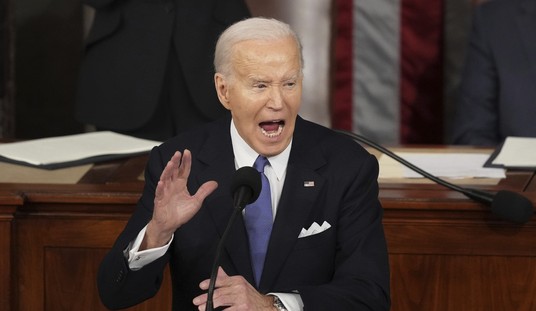The Supreme Court has finally gone mad.
Before, people like me could almost always blame liberal "activist" justices, but this time seven justices, including conservatives Antonin Scalia, John Roberts and Samuel Alito, signed on to the constitutional madness.
The case called Brown v. Entertainment Merchant Association, involves a California law that forbids stores to sell video games with violent content to minors, or risk a $1,000 per violation fine. Note what the law does not do. It does not forbid parents or other relatives from purchasing violent video games for children. It does not forbid minors to play violent video games. It doesn't forbid anyone to give a video game to anyone they want.
It simply forbids a business to sell a violent product to a child without the parents' sanction.
How can this violate free speech?
Yet of nine justices, only the odd couple of Clarence Thomas and Stephen Breyer objected, and of these, only one -- Thomas -- grasped the elemental truth: Our beloved First Amendment does not give business a constitutional right to market violent video games to your children without your consent.
For Thomas alone, this was a simple case:
"'Freedom of speech,' as originally understood, does not include a right to speak to minors without going through the minors' parents or guardians."
Scalia's majority opinion ties itself up in knots to avoid this simple truth.
First, he insists that a video game, like nude dancing, is speech.
OK.
Then, Scalia insists that the act of selling a video game is also speech.
Recommended
OK.
So far, that's arguable, but within the realm of the rational.
Then Scalia goes off the deep end, insisting that, therefore, businesses have a constitutional right to sell video games to your children without your consent.
Why?
Scalia borrows from the pornography experience to point out that much worthy literature, including some we assign in schools to children, includes graphic depictions of violence.
It is patently irrational, he rules ("wildly underinclusive") for the law to forbid children to buy "Grand Theft Auto" (or worse) and permit them to buy Grimm's Fairy Tales.
I'm not making this up. That's what Justice Scalia said, speaking for the majority:
"California's argument would fare better if there were a longstanding tradition in this country of specially restricting children's access to depictions of violence, but there is none. Certainly the books we give children to read -- or read to them when they are younger -- contain no shortage of gore. Grimm's Fairy Tales, for example, are grim indeed. As her just deserts for trying to poison Snow White, the wicked queen is made to dance in red hot slippers "till she fell dead on the floor, a sad example of envy and jealousy. ... And Hansel and Gretel (children!) kill their captor by baking her in an oven."
Breyer, in upholding the law, took refuge in a different set of comparisons:
"What sense," he asked, "does it make to forbid selling to a 13-year-old boy a magazine with an image of a nude woman, while protecting the sale to that 13-year-old of an interactive video game in which he actively, but virtually, binds and gags the woman, then tortures and kills her?"
Violent video games get much worse than that. As LA Times columnist Anthony Malcolm put it:
"Rapes with accompanying violence and screams climaxed by unheeded cries for mercy and explicit homicide. Electric drills. Igniting gasoline on anguished victims. ... In effect, the court decided that access to such interactive activities should be left to the industry's own rating system and the willingness of minimum-wage store clerks to enforce it."
Why did Scalia do this?
I suspect that for the conservative justices, two concerns are at work. The first is that it is simply too administratively difficult for the modern Supreme Court to enforce any line that involves judgment. The Court does not want to face an array of video games "pushing the line" to figure out where the line lies. That is the fear generated and expressed in the pornography cases.
Second, I suspect the conservatives want to draw a hard-and-fast line against the coming assault on cultural content they foresee in the name of liberal gods like public health or sexual orientation. Traditional cultural content could be strongly disfavored if government can enact blanket bans on sale of content to minors in our commercial society.
This is speculation, of course.
But our inability to find ways to help parents in even minimal ways to stem the marketing invasion to our own children is a shame on all of us. To turn that marketing invasion into a constituitonal right is an outrage.
One suggestion for California lawmakers: Consider eliminating criminal fines and instead substitute a right of action for parents who believe their children have been injured to sue the vendors who sold it without express parental consent.
Try, try again.

























Join the conversation as a VIP Member